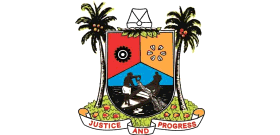 Lagos Gears Up Aviation Sector with Lekki-Epe Int Airport and Multimodal Transport Integration
Lagos Gears Up Aviation Sector with Lekki-Epe Int Airport and Multimodal Transport Integration
Lagos State Governor Babajide Sanwo-Olu has emphatically declared the state’s commitment to revitalizing Nigeria’s aviation industry, emphasizing deeper investment, strategic partnerships, and global-standard reforms to position aviation as a cornerstone of the nation’s economic future. Speaking at the 2025 Federal Airport Authority of Nigeria (FAAN) National Aviation Conference in Lagos, themed “Elevating the Nigerian Aviation Industry through Investment, Partnership and Global Engagements,” the governor highlighted the critical role of aviation in Nigeria’s competitiveness.
Sanwo-Olu pointed to the mounting pressure on Lagos’ aviation infrastructure, particularly at Murtala Muhammed International Airport (MMIA), the country’s busiest gateway, where daily passenger traffic now exceeds existing capacity. He identified congestion, the rise of larger aircraft, booming e-commerce, and tightening global environmental standards as urgent challenges demanding modern, scalable solutions.
To address these demands, Lagos is integrating aviation into a broader multimodal transport network, including new rail lines, expanded Bus Rapid Transit (BRT) corridors, and upgraded waterways that connect airports, seaports, and industrial zones. This seamless mobility framework aims to underpin world-class aviation hubs and enhance overall connectivity.
Central to this vision is the Lekki-Epe International Airport, a flagship project that has moved beyond aspiration to a fully approved, investor-backed development. Situated on 3,500 hectares adjacent to the Lekki Free Trade Zone, the airport is designed as a Code-F compliant facility capable of accommodating large-body aircraft such as the Airbus A380. It is planned to handle over five million passengers annually, with room for future expansion.
Governor Sanwo-Olu framed Lekki-Epe not merely as Lagos’ second airport but as the anchor of a rapidly emerging economic corridor that includes the deep-sea port, the Dangote refinery, and a cluster of manufacturing and petrochemical industries. The new airport is expected to alleviate pressure on MMIA while unlocking fresh opportunities in maintenance, repair and overhaul (MRO), cargo logistics, hospitality, and aviation training.
Designed as a climate-smart facility, Lekki-Epe International Airport will incorporate solar power, sustainable waste and water management systems, and future connections to rail and high-capacity bus services. The governor also emphasized inclusive development, ensuring that communities in Ibeju-Lekki and Epe benefit through housing, job creation, skills development, and environmental safeguards.
Sanwo-Olu called for unified action among investors, airlines, financial institutions, and federal agencies to move from discussion to delivery. Praising the leadership of FAAN and the Nigerian Civil Aviation Authority (NCAA), he stressed that Nigeria must think bigger to compete globally. “Lagos is ready, the aviation future is now, and the world will not wait for those who hesitate,” he declared.
This ambitious plan positions Lagos among a select group of African megacities with dual-airport systems, underpinning Nigeria’s broader economic growth and integration into global aviation networks.
